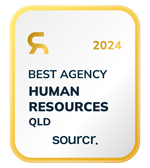
In this article, discover the importance of company exit interviews. They are an invaluable tool that can help you understand what you’re doing right as far as your employees are concerned, and what needs to be improved. They can also potentially help with reducing expensive staff turnover and, in turn, ensure you recruit the right replacement when someone does leave your organisation.
Do you carry out exit interviews when an employee leaves your organisation? If so, are they electronic or in person? Are they carried out by an internal HR person or by an independent, external company? What do you do with the results?
If on the other hand you don’t carry out exit interviews, do you know why not??!!
Having many years’ experience with exit interviews, I have found that best practice exit interviews have the following features:
- Personal telephone or face-to-face exit interviews are best.
Whilst the interviewer can have prescribed questions they want to ask, this model enables subtle nuances in answers to be identified and further explored. It is these subtleties that are often at the heart of reasons for leaving, so it’s vital you know what the reasons are.
- The results need to be analysed.
There is little to be gained in carrying out exit interviews if the results aren’t carefully analysed and reported. From my experience, even a sample of just ten exit interviews can reveal trends that need to be considered.
- Keep it impersonal.
Using an external company is more effective than using an internal resource. This is because the interviewer is seen as being completely objective and not involved in company politics. I have found that this often leads people to speak more freely and impart meaningful comments.
- Take action.
Once results have been anlaysed, use them to improve things wherever possible. For example, if poor management is cited as a reason for leaving by numerous employees, look at training the relevant manager (or indeed all of them).
- Measure the impact.
To point 4 above, once changes have been implemented as a result of intelligence from exit interviews, decide when and how you are going to evaluate the changes that were made to see if they have made a difference on your recruitment and retention strategy.
- It’s a positive thing to do.
Even if an employee is leaving with a negative view of their time with your organisation, a well thought out and executed exit interview can leave a positive impression on the departing employee. It demonstrates that you value their opinion. If nothing else, it shows you care enough to take the time to ask what went wrong!
- Let people know what you’ve done.
Tell your employees that you have listened to what they say, and that you have made changes. Employees who feel they are heard are happy in their jobs and in turn, make a happy team and a positive workplace culture.
Investing time and resources into understanding why employees are leaving your organisation will pay off over time. It allows you to improve your employer brand and make improvements that will impact staff engagement. They can help you understand what needs to be improved to help you reduce your staff turnover rate. This overtime will reduce recruiting costs and can even improve team productivity.
Parkhouse Bell provides exit interview services for a number of organisations in Australia including Employment Services, Vocational Education, Community Services, Disability Services / NDIS and Allied Health. If you would like any further information, particularly if you or your HR team are already over stretched, we can help.
To find out more about best practice recruitment, executive search and to be the first to hear about upcoming roles, follow our LinkedIn Company page here.


